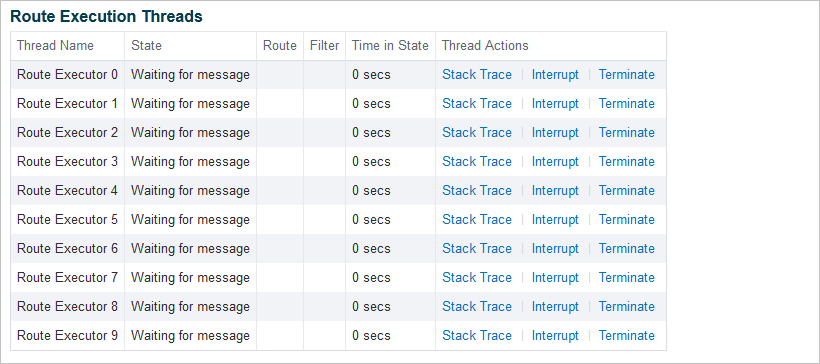Route threads cannot be interrupted or stopped by the user if they are currently in one of the following states, and have been so for less than 1 minute:
- Stopping.
- Delivering.
- Pulling from Input Queue.
- Routing message.
Any attempt to stop or interrupt a route thread in one of these conditions will fail. The threads page is reloaded with an error message indicating the problem.
Interrupting a route execution or collector thread will cause the current message to be aborted. However, the thread continues and will immediately pick up the next message for processing (this could well be the message that it was previously processing if the route is still running).
Stopping a route execution or collector thread will cause the current message to be aborted, and the thread will exit. The route execution framework will then recreate a new thread to take its place.
Field/Action |
Description |
|---|---|
Thread Name |
The internal thread name. |
State |
The thread state. Route execution threads can be in the following states:
|
Route |
The route the thread is currently running on. This is a hyperlink, or blank if the thread is not currently processing on any particular route. |
Filter |
The filter the thread is currently running on. This is a hyperlink, or blank if the thread is not currently processing on any particular filter. |
Time in State |
The amount of time the thread has been in its current state:
|
Thread Actions |
|
